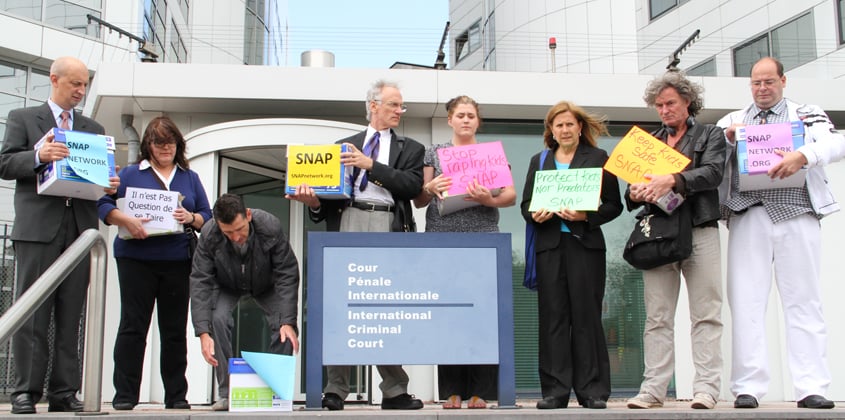
“First they ignore you, then they laugh at you, then they fight you, then you win.” – Mahatma Gandhi
While CCR’s unique contribution to human rights and social justice struggles is through its litigation work, we do not evaluate that work in traditional “lawyerly” ways. In decisions about what cases to take, in the choices we make about media and advocacy during the course of a case, and in our assessment of the success of the case, the Center looks beyond a narrow legal lens and considers above all a case’s value to the social movements of which it is a part.
The Center accepts cases based on principle and the value of the struggle itself, not solely by using a calculus of how likely we are to win. We were the first organization to defend detainees at Guantanamo, for instance, because no matter how wildly unpopular it was at the time or how hostile the government was to the idea that those detainees had rights, the fight against indefinite detention is simply too important to bow to political expediency. Many of our cases are explicitly situated in larger justice struggles, and we take them with the intention of aiding those struggles.
To CCR, the value of a case is not determined solely by its outcome but in part by the attention it can draw to the rights at stake and the vulnerable communities on whose behalf we are fighting. This is one reason we have a robust communications program, so that we can effectively publicize our clients and our causes. Similarly, CCR’s dedication to advocacy work reflects the commitment to strengthening the organic connection of our cases to the movements from which they arise and to using our cases to help make progress on issues before there even is a court ruling.
While CCR wins many groundbreaking cases – from Supreme Courts victories like Rasul v. Bush to sweeping reform mandates like Floyd v. City of New York – we also lose cases. But there is often “success without victory” in these cases, in the memorable words of CCR President and constitutional scholar Jules Lobel. Sometimes the scrutiny a case brings to an injustice forces partial reforms to happen in a response to public outcry, or in an effort to undermine our lawsuit. Other times, a case helps put an issue on the map and contributes to long-term struggle that results in victory years or decades later. Very often, CCR sticks with a case, a client, a cause over years and decades before we win – but eventually we do win.

